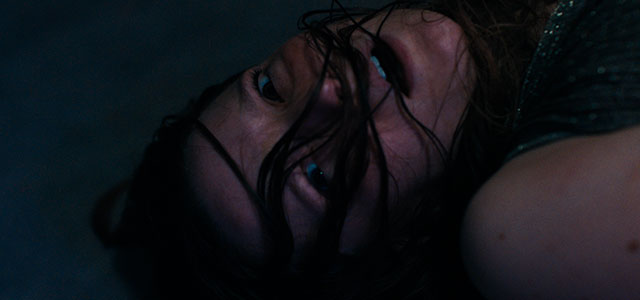
Eerie British chiller Saint Maud is bound to send tingles down your spine while questions zigzag through your mind. It’s previewing as a Cineworld Unlimited screening on 5th October before going on general release on 9th October. And it promises a spookily good time at the cinema as we count down towards Halloween.
David Copperfield actor Morfydd Clark is a revelation as Maud, a mousy, timid and pious convalescent nurse with a murky past. When she takes a job caring for a critically ill, embittered ex-dancer named Amanda (Contagion’s Jennifer Ehle), Maud’s life appears to be invested with renewed purpose. Indeed, she vows to save the apparently sinful Amanda’s soul – but what’s driving this odyssey?
The path towards finding out becomes increasingly twisted and unsettling, superbly marshalled by director Rose Glass who makes her feature film debut. We were delighted to catch up with Rose to discuss the enduring appeal of horror and Saint Maud’s surprisingly humorous undercurrents.
It’s a remarkable feature film debut that you’ve made here. Would you describe yourself as a fan of the horror genre in general?
I thought that the answer was yes, until I went to a few genre film festivals like Fantastic Fest. Compared to a lot of genre horror crowds, I realised that I’m not up to scratch. Maybe the films I’ve liked having been straight-up, classic horror but more, like, films with a foot in the macabre.
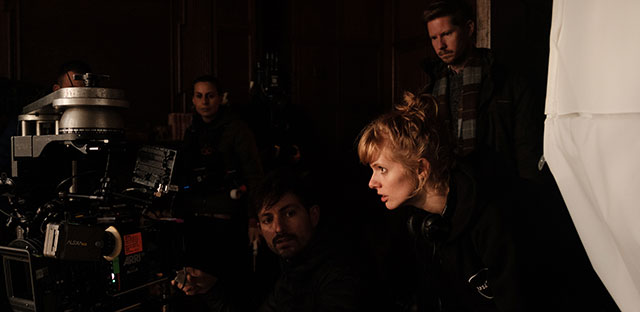
Actually, that leads into my next question. I found a quote from David Fincher who said of his film Seven that it wasn’t a serial killer movie but a “meditation on evil”. Would you describe Saint Maud as a horror movie at all, or something more ambiguous?
I guess it’s more ambiguous. I feel that it’s scary in places and there’s a general tone of foreboding but genre-wise, I’m not sure.
There’s a whole term of ‘elevated horror’ that keeps getting bandied around and I’m not a fan of it, because it’s quite snobby. I mean, I get the distinction; I suppose it rests on whether you think something should rely on jump scares or not. But Saint Maud I’ve always seen as a kind of f****d up, fun character study.
You established yourself by making striking short films. What did you learn from that process when it came to making the jump into feature filmmaking?
I’m lucky, I went to a really great film school and I found lots of stuff out. Hands up, there are plenty of short films that I’m not too proud of and probably wouldn’t show many people. But you end up learning the most from f*****g it up. The practicalities of getting what’s in your head on the screen is challenging and technical. It helps you hone in on the stuff you’re interested in as well.
Thematically and tonally, my shorts have connections to Saint Maud. I worked out that I like somewhat intimate, twisted psychological stories but told in a grand, epic visual style. The mechanics of visual storytelling is something I get really excited about. To have a foot in reality, and also have a foot in somewhere else.
One of the fascinating things I read, in another interview you’d done, was the influence of Taxi Driver’s Travis Bickle on the character of Maud. Could you expand on that?
Sure. I mean, it’s not like it started from Travis Bickle. It’s more the sense that I started writing this character, I then watched Taxi Driver and it proved helpful in clarifying who Maud is. Just in the sense that both characters are alienated and estranged from society. They also have a pious, judgmental view of the people around them.
Their heightened impressions of themselves are at odds with how the rest of the world sees them. Travis Bickle believes he’s on some kind of a mission. There’s also a kind of twisted humour that arises from that sense of disconnect. I think a lot of people can relate to that, even if they’re not as delusional as Maud or Travis Bickle. The idea of you being the hero of your own story.
Absolutely. A lot of the power derives from Morfydd Clark’s performance as Maud, which is really powerful and unsettling. Was she always your first choice for the role?
From the point that we saw her audition tape, yes, definitely. We didn’t know her before but she sent in a tape and it was instant as soon as we saw her face. She had a kind of a haunted quality. She’s also really funny in the role. That’s one of the things I loved about her performance. A character in a film like this wouldn’t work without humour in it. It would be too relentless. She was great at bringing that out.

There’s almost a self-awareness about her performance.
Totally. It’s a hard thing to play because she’s drawing out the humour of a character who doesn’t realise they’re being funny. She made a lot of complicated stuff seem quite effortless.
Both she and Jennifer Ehle have an effortless, natural style to their performances and that seemed especially good for this film because the tone is quite heightened. Quite theatrical and campy in places. To some extent, it’s inspired by films like The Devils, by Ken Russell. The film gets quite ridiculous in places so it needs to be grounded in believable performances.
You mentioned Jennifer Ehle there, who is surely one of the most underrated actors around. Was she good fun to work with in this?
She’s phenomenal, and so much fun. She’s American, she lives in New York, and a lot of people are often surprised about that. We offered her the role and she said yes. I literally had one brief phone call with her before she turned up in England to shoot the film. This was, like, two days before we started shooting.
So we had no prep time and I was really nervous before meeting her. But she’s so down to earth and chilled and funny and fun. She definitely made my job easier, and made me feel a lot more confident. Both Morfydd and I were very nervous – this was the first big feature I’d directed and the first thing she’d played the lead role in. Jennifer was so nurturing and lovely on the set.

In the era of coronavirus, and this is my interpretation of it, the film seems to have taken on even more of a timely quality, in that there’s nothing scarier than human weakness and impulse. Would you agree with that?
Yeah, I like that interpretation. I’ve often said that there’s nothing scarier than what’s in your own head. Of being trapped in your own mind. But also because in a lot of the film, Maud is by herself in her apartment, stewing on things and feeling depressed, alienated, confused, worried. A lot of it chimes more.
In recent years there have been several women filmmakers who have emerged as extraordinary horror pioneers. For example, Jennifer Kent with The Babadook and Natalie Erika James with the upcoming Relic. Do you think the industry is turning a corner and allowing women a voice in terms of genre cinema?
I don’t know, to be honest. Very often, the voices that get to tell these stories are men. But from my own point of view, horror has always been a genre that’s been popular with first-time filmmakers, or those early on in their careers. Sometimes they’re easier to get made. I’ve always wanted to make dark, messed-up films but I’ve never necessarily wanted to be a horror director.
It’s a genre that naturally lends itself to being quite creative and playful for debut directors. For me, it's more about that, and less about drawing parallels with women filmmakers specifically, although people often intellectualise it like that. But then horror has always had intriguing female characters within it. People often talk about the new representation of women within horror movies and I’m like, have you seen Carrie?
There was certain shots in this where I looked at Morfydd Clark and was reminded of Sissy Spacek in Carrie.
Yes, they do look alike. It’s weird, I wasn’t particularly thinking about the likes of Carrie or The Exorcist during writing or shooting, but I can see in hindsight how people have drawn those parallels. Maybe I did it subconsciously without realising. They weren’t films that I was thinking of, but for people to draw such comparisons is really flattering – and cool!
Click here to book your tickets for the Saint Maud Cineworld Unlimited screening on 5th October. Saint Maud goes on wide release on 9th October.
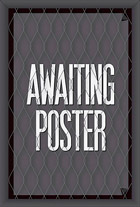
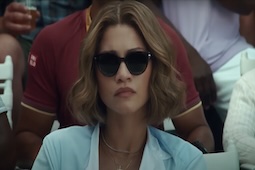
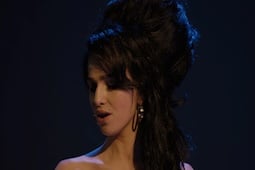
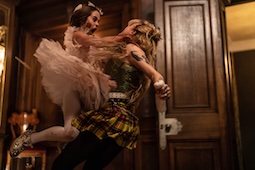
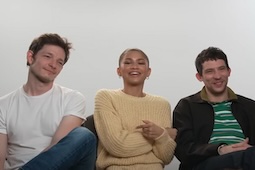
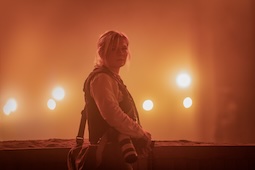
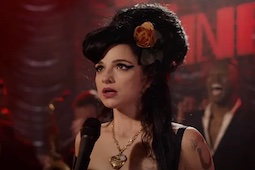
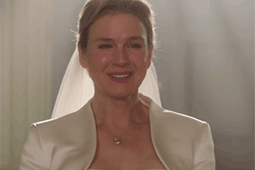
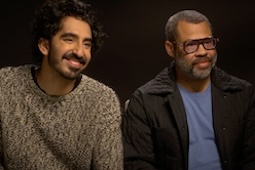
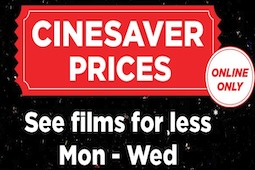
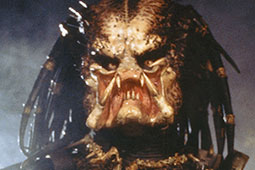
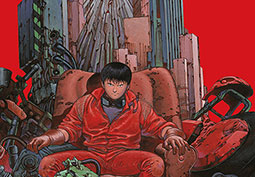
.jpg)
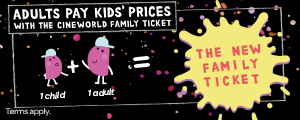

.jpg)
.png)






